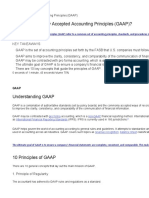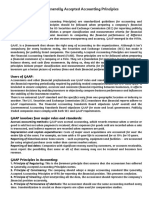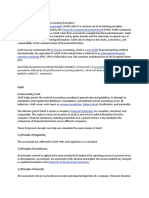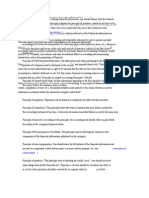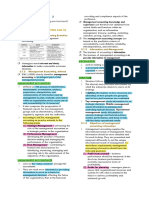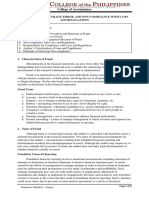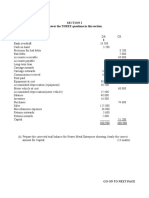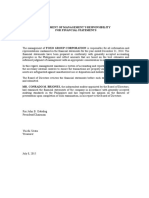0% found this document useful (0 votes)
20 views2 pagesGAAP Assignment EMIS-502
This document discusses Generally Accepted Accounting Principles (GAAP), which are essential for consistent and transparent financial reporting in business. It outlines the key principles of GAAP, its importance for investor confidence, legal compliance, and improved decision-making, and compares GAAP with International Financial Reporting Standards (IFRS). Overall, GAAP serves as a foundational tool for maintaining integrity and accountability in financial disclosures.
Uploaded by
nexabirCopyright
© © All Rights Reserved
We take content rights seriously. If you suspect this is your content, claim it here.
Available Formats
Download as DOCX, PDF, TXT or read online on Scribd
0% found this document useful (0 votes)
20 views2 pagesGAAP Assignment EMIS-502
This document discusses Generally Accepted Accounting Principles (GAAP), which are essential for consistent and transparent financial reporting in business. It outlines the key principles of GAAP, its importance for investor confidence, legal compliance, and improved decision-making, and compares GAAP with International Financial Reporting Standards (IFRS). Overall, GAAP serves as a foundational tool for maintaining integrity and accountability in financial disclosures.
Uploaded by
nexabirCopyright
© © All Rights Reserved
We take content rights seriously. If you suspect this is your content, claim it here.
Available Formats
Download as DOCX, PDF, TXT or read online on Scribd
/ 2




